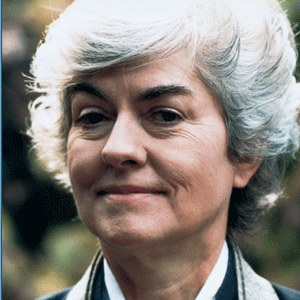Maurine Stuart died on this day, the 26th of February, 1990.
I wrote of her in my book Zen Master Who:
Maurine Stuart, one of the first female Zen masters in America, was also one of the first to give Zen a Western face. Maurine was born in Saskatchewan, Canada, in 1922. In 1949 she received a music scholarship to study in Paris with renowned conductor Nadia Boulanger, who would later become the first woman to conduct a major symphony in America. While in Paris, Maurine first stumbled across a reference to Zen in a book called An Introduction to Oriental Thought. Many years later, when interviewed fora biographical study by Lenore Friedman, Maurine recounted how she wrote in the margins of the book, “That’s it!”
But it wasn’t until 1966 – after she ha returned to the United States, settled in New York, married Oscar Freedgood, and had three children – that Maurine began practicing at the Zen Studies Society. After three weeks, she sat her first sesshin, Zen’s intensive meditation retreat with Haku’un Yasutani Roshi in upstate New York.
She studied with Yasutani, Soen Nagkagawa, and the Zen Studies Society’s resident priest Eido Shimano. In 1970 she moved to Newton, Massachusetts, where she opened the Chestnut Hill Zen. Soon after she joined the Cambridge Buddhist Association and in 1979 became its president. In 1977 she was ordained a priest by Eido Roshi. From that point, she was the Cambridge Buddhist Association’s resident teacher.
Eventually she broke with Eido Roshi but continued her training, primarily with Soen Roshi. In 1982, two years before his death Soen told her to start calling herself “Roshi.” This was a controversial event, as he chose not to give her formal Dharma transmission. Consequently she refrained form using traditional Zen phrases such as “Dharma heir” or “Dharma holder” when referring to herself – although she did, as requested, use the title Roshi. She ordained several priests, but did not designate any successors before her own untimely death from cancer in 1990.
Often called Ma Roshi and Mother Roshi, Maurine Stuart offered an authentically Western perspective on being a Zen practitioner and teacher: gentle, yet rigorous and relentless. This perspective opened the way not only for many women, but also for the moneymen who found something compelling in Zen – but not in the harshness of Asian forms.
While she left no Dharma heirs, several of her students went on to prominent places in Western Zen.
Many bows to this founding mother of our Zen way in the West.
Many bows…













